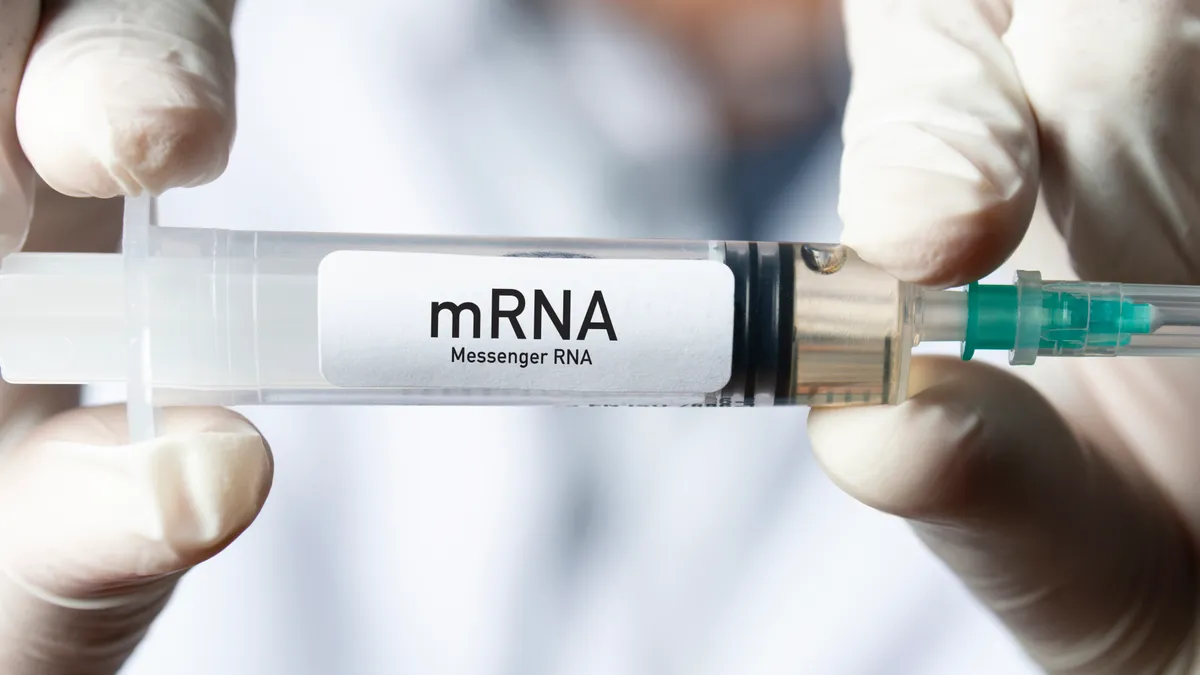Awards…
Amylin’s Diabetes Product Honored
Amylin’s Bydureon has been honored by the Distribution Management Awards for Notable Achievements in Healthcare (DIANA) for the category of best new pharmaceutical product introduction. The DIANA award recognizes pharmaceutical and consumer product manufacturers that set the standard for innovation. Bydureon is a once-weekly formulation indicated for Type 2 diabetes. The product was approved in the United States in January 2012 and in Europe in June 2011.
Radiant Sage Receives Frost & Sullivan Award
Radiant Sage, a provider of on- demand clinical trial image management solutions, has received the Frost & Sullivan 2012 Customer Value Enhancement Award for its clinical trial image management solutions. The award recognizes companies that have demonstrated excellence in implementing strategies and supporting products and services that proactively create value for their customers. Radiant Sage CEO Venkatesan Thangaraj accepted the award from Art Robbins, president, North America of Frost & Sullivan.
Rosetta Genomics Receives Frost & Sullivan Award
Rosetta Genomics, a provider of microRNA-based molecular diagnostics, has been recognized with the Frost & Sullivan 2012 North American Next Generation Diagnostics Entrepreneurial Company of the Year Award. Rosetta Genomics was one of the first providers of microRNA-based diagnostics in 2007.
Industry at Large
Dr. Dana Hardin, medical director at Lilly, and Max are part of a program by Lilly and ICAN to train dogs to detect low-blood sugar in people with Type 1 diabetes.
Lilly Research Sniffs Out What Dogs Know about Diabetes
A young lab named Max sleeps at the feet of Dana Hardin, M.D., medical director and a pediatric endocrinologist, at Eli Lilly and Company. Max is an assistance dog in training, one of several at Lilly being socialized in real-life situations by employee volunteers under the guidance of the Indiana Canine Assistance Network (ICAN). Through ICAN, Max is learning to detect hypoglycemia, a dangerously low level of blood sugar, in people with diabetes.
As a hypoglycemia alert dog, Max is also part of research Lilly began in June to better understand why dogs are able to sense severe blood sugar events in their owners and to identify the compound or compounds they smell as part of those events. A dog’s nose may actually be more than 1,000 times more sensitive than humans.
Acorda Provides Financial Webinars for People with MS
The National Disability Institute (NDI) and Acorda Therapeutics are providing a free six-part webinar series on financial, tax, and investment topics for people living with multiple sclerosis (MS), their families, and care teams. In 2011 survey, NDI found that 67% of respondents reported that their financial positions declined after their MS diagnosis. The series began in 2011 with more than 1,200 participants. This year, NDI and Acorda have expanded the program to cover more topics.
Oncologists Restrict Sales Rep Access
About 61% of oncologists placed moderate-to-severe restrictions on visits from pharmaceutical sales reps, according to the spring 2012 AccessMonitor, a report from ZS Associates. This makes oncology the most restrictive of the 20 most common medical specialties measured in the report. By comparison, about 47% of cardiologists and only 38% of primary care physicians restrict rep access to the same degree.
Share of Physicians Seeing ipad Reps Doubles
Among e-pharma physicians who have interacted with a pharma sales rep in person, 65% have seen a rep use an iPad, up from 30% in 2011. This finding is from the new ePharma Physician 2012 study from Manhattan Research.
Generic Drug Use Increases
The use of generic drugs has risen to a current rate of $1 billion every other day, totaling $193 billion in 2011 and more than $1 trillion over the last 10 years (2002-2011), according to the Generic Pharmaceutical Association (GphA) study by IMS Institute for Healthcare Informatics.
Americans Resist Electronic Health Records
Americans routinely use electronic files to manage their finances, communicate with friends and family, and even take college courses, but when it comes to medical records, only 26% want them digital. The findings come from the third annual Electronic Health Records (EHR) online survey of 2,147 U.S. adults, conducted for Xerox.
EHR — A Snapshot
26% Want digital medical records
40% Believe digital record will deliver better, more efficient care
60% Reported data was entered directly into a tablet, laptop or in-room computer station
85% Express overall concern about digital medical records
Podcasts
What are ACOs and Why Should You Care?
Thought Leader: Anthony D. Slonim, M.D., Barnabas Health (sponsored by CMR Institute)
Successful Email Marketing Methods —How to Boost Response by 400% or More
Thought Leader: Terry Nugent, MMS Inc.
How to Tap the Pharmacy for Clinical Trial Patients
Thought Leaders: Steve Hoffman, McKesson Corp., and Lynda Stout, Pharm.D., Lombard Health Mart Pharmacy
Untangling Alzheimer’s Disease
Thought Leader: Prof. Claude Wischik, TauRx Therapeutics
White Papers
ACOs Have Redefined the Problem: Has Pharma Positioned Its Solutions?
Sponsored by: CMR Institute
Capitalizing on Virtual Environments in a Rapidly Changing Pharmaceutical Marketplace
Sponsored by: InterCall
What it Takes to Go for Gold: How Women Use Coaches to Go for Gold in 2012 Olympics and in Business
Sponsored by: The Pyramid Resource
Webinar
Building Winning Strategies in an ACA World: Your Guide to Success in a Value-Driven Market (OnDemand)
Sponsored by: WG Consulting
Video
Leadership Development Through Sponsorship Thought Leader: Laurie Cooke, HBA



















